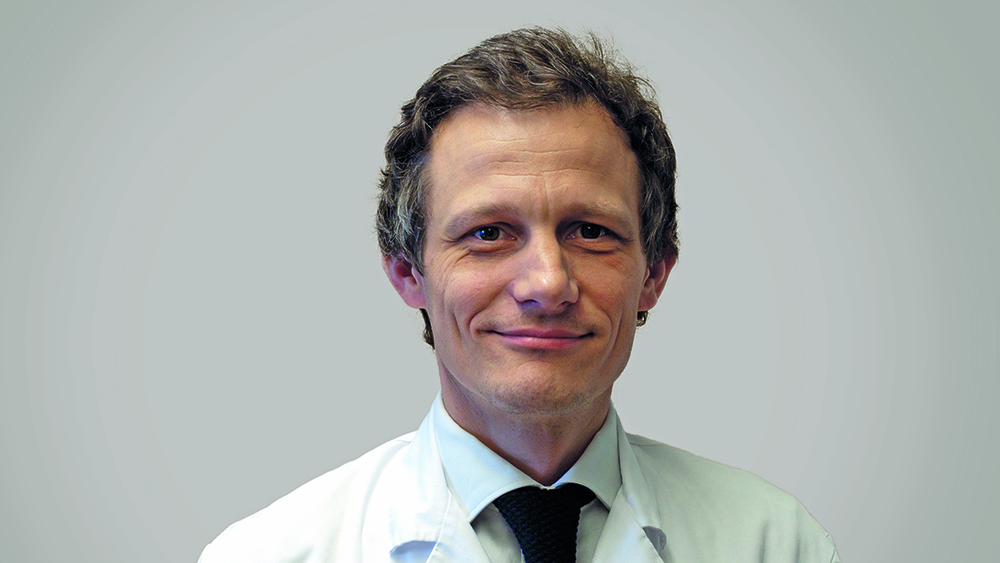Joining Forces to Battle Cancer
Markus Manz, can we beat cancer?
That would be nice. But the figures speak another language: the number of new cases of cancer could double by 2040. This is primarily due to longer life expectancies. Cancer is predominantly a disease of old age. That’s why it’s important to do everything we can to thoroughly investigate the biology of cancer, detect the disease earlier on, develop innovative therapies – and ultimately find ways of healing people while preserving a good quality of life.
How would you describe the way cancer is treated at present?
Being diagnosed with cancer is initially a shock for anyone. But you have to realize that cancer patients are very well looked-after in Switzerland. They get a precise diagnosis, personal counseling, and a modern range of therapies built on the three pillars of cancer therapy: surgery, medical oncology and radiation therapy – or depending on the circumstances, a combination of these. There are also supplementary therapies, for example in complementary medicine.
Are all patients able to make use of these options?
At the CCCZ we have 17 organ centers specializing in different types of cancer. There cancer patients get a comprehensive, cross-disciplinary consultation from medical and nursing experts. The goal is to provide individually coordinated, innovative treatment approaches in line with the most modern standards of medicine. The numerous clinical studies offered at the CCCZ also give our patients access to new drugs.
Our holistic, integral care is rounded off by information and counseling services, for example genetic counseling, psycho-oncology, complementary medicine and palliative care. CCCZ also offers the option of seeking a second opinion.
What did you pay particular attention to in terms of the organization of the CCCZ?
The aim was to connect cancer medicine and cancer research. So at the CCCZ we have clinicians and basic researchers working together under one roof. That way they can learn and benefit from each other. In the 17 organ centers they collaborate to rapidly translate the findings of basic research into clinical applications and improve care for cancer patients.
The center focuses on different types of cancer. For example there’s a colon tumor center, a brain tumor center, a skin cancer center, and a prostate carcinoma center, to name only four of the 17. The advantage of the CCCZ is that clinicians share new treatment, research and therapy approaches, bringing everyone forward. We also have experts in new technologies and bioinformaticians on board.
New discoveries related to one type of cancer can also be helpful for others or be applied in part, if not one to one. That also applies when it comes to developing precision medicine. New, highly targeted therapies intervene in specific processes in different tumors. Ultimately the CCCZ should work like an orchestra, with many individuals playing their part in creating something big.
Are there also other players involved?
We coordinate collaboration between the University Hospital, the other university hospitals such as Balgrist and the Children’s Hospital, and the University of Zurich. Naturally the ETH is also an important partner. We’re all working towards giving patients early access to new therapies and drugs. We’re also keen to invest in continuing education for researchers and clinicians. In addition we want to make an impact outside the organization and keep patients, their families, and interested members of the public informed about current developments in oncology. Not least, we also aim to position ourselves as a key player in cancer medicine, locally and internationally.
How will that happen?
We’re looking for new substances and therapies, for all types of cancer. I have dealings with cancer patients on a daily basis, and I’m grateful that we now have better treatment options than we did 20 years ago when I started out. That also motivates me personally, because every day I see how precious it is when a therapy gets results.
I also see great potential in terms of improving treatments and therapy for the event that cancer returns. We have to develop better methods, especially what we call second- and third-line therapy when the disease recurs. Another key focus is the early diagnosis and prevention of cancer.
Is the center also able to fund research projects itself?
We can highlight the added value of collaboration, define areas of focus, and facilitate collaborative projects by approaching funding bodies. At the moment 16 translational cancer research projects are receiving financial support from UZH and the Zurich Faculty of Medicine. That’s work combining research and clinical practice. But the funding for these projects runs out in mid-2022.
You’re both a researcher and a clinician, and as chair of the CCCZ you’ll also have to take on a lot of new administrative work. What keeps you going?
I wanted to make a contribution to enabling cancer to be better controlled and cured. I’m very much involved in clinical care, and also do basic research. It’s certainly an advantage for someone who knows both worlds to be in this role.
What’s been achieved so far?
In the last few years we’ve created the structures and principles for a comprehensive cancer center in Zurich. The foundation was to bring together cancer medicine and research at UZH, USZ and the university hospitals under the virtual roof of the CCCZ. To meet the requirements of a modern comprehensive cancer center, we’ve now adapted our administrative structures. This includes setting up a new CCCZ board with eight members representing the core expertise required by a modern cancer center (see information box). The upcoming phase will involve setting up innovative cancer research programs focusing on personalized oncology and developing the CCCZ into a leading center of excellence in Switzerland and Europe.
